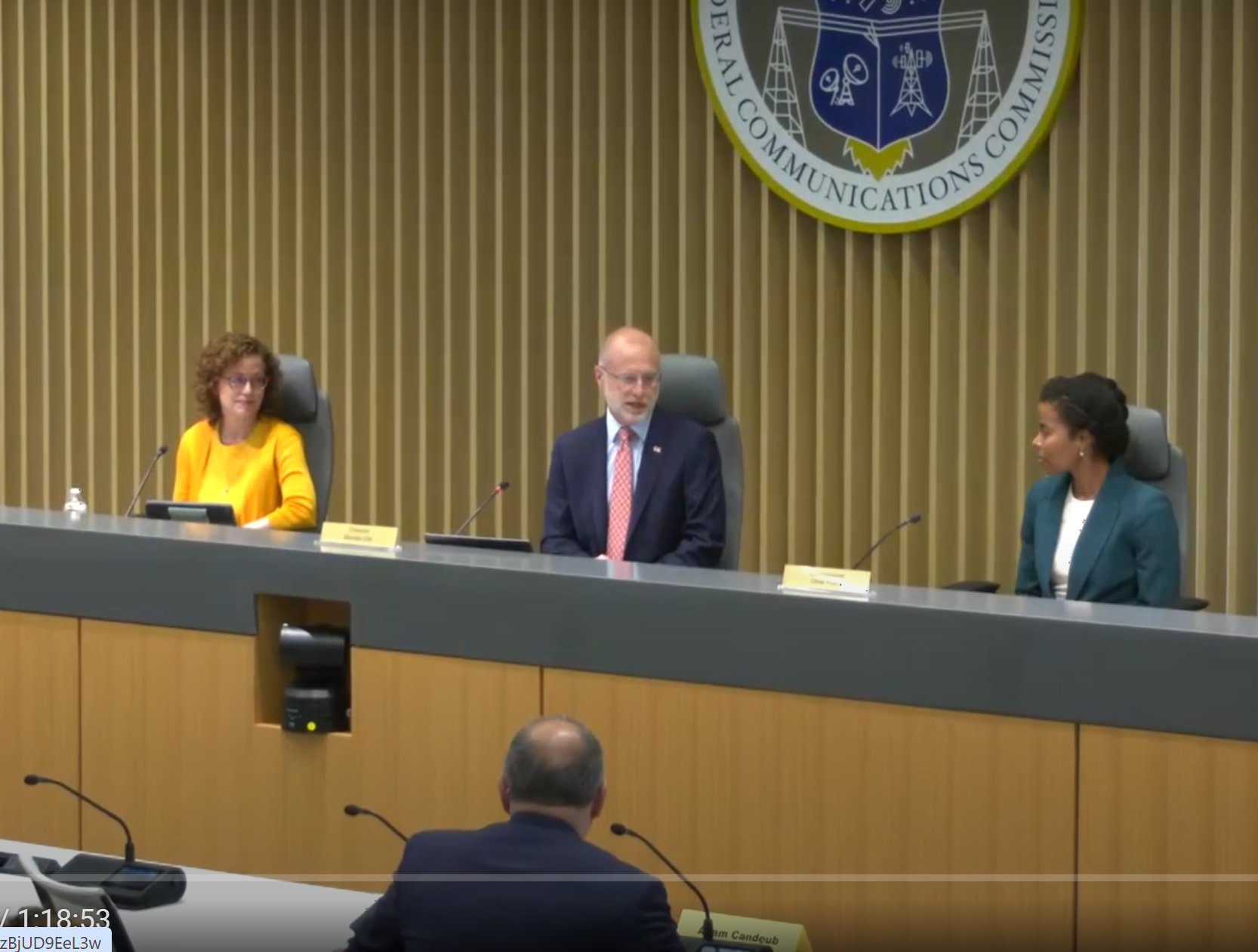FCC Proposes Reallocating 40 Percent of Broadcast Spectrum
WASHINGTON: Broadcasters stand to lose 40 percent of their spectrum under the FCC’s new National Broadband Plan, due on Capitol Hill tomorrow. The plan was released in Washington today; details emerged in several reports. The goal of the plan is to bring 100 Mbps broadband access to 100 million American homes in 10 years, nearly doubling the current reach of high-speed Internet access.
It calls for making 500 MHz of spectrum available in 10 years, and 300 MHz available within the next five years, for both licensed and unlicensed use. Of that, 120 MHz is to come from television broadcasters, who now occupy roughly 300 MHz.
“Spectrum is a major input for providers of broadband services,” the commission’s executive summary states. “Currently, the FCC has only 50 MHz in inventory, just a fraction of the amount that will be necessary to match growing demand.”
The plan suggests incentive auctions, with proceeds to be shared “in an equitable manner with current licensees are market demands change... for example, this would allow the FCC to share auction proceeds with broadcasters who voluntarily agree to use technology to continue traditional broadcasting services with less spectrum.”
Spectrum would ostensibly be freed up by channel repacking, which occurred last June with the digital transition, and/or voluntary relinquishment.
A Greek chorus of lawmakers and lobbyists lauded the plan. Rep. Rick Boucher (D-Va.) said the FCC had done “a superb job in meeting the challenge set forth by Congress.” Rep. Ed Markey (D-Mass.) said it would “unleash a tidal wave of new investment and innovation.” The often prickly D.C. public-interest group Public Knowledge said the commission produced a “balanced, comprehensive and forward-looking plan that should serve the country well.” Exercising a bit more restraint, Mark Cooper of the Consumer Federation of America said it was a “significant first step in the right direction.”
The broadcast lobby went on the offensive. The NAB’s Dennis Wharton said the NAB was “pleased” by initial indications that spectrum reallocation would be voluntary, “however, we are concerned by reports today that suggest many aspects of the plan may in fact not be as voluntary as originally promised. Moreover, as the nation’s only communications service that is free, local and ubiquitous, we would oppose any attempt to impose onerous new spectrum fees on broadcasters.”
He noted that broadcasters had already returned 108 MHz of spectrum in the digital transition, comprising more than one-fourth of TV’s total. He also said the NAB “strongly support[s]” the pending bills on Capitol Hill that would require an inventory of all available spectrum.
“No reallocation plan should move forward without a complete accounting of how the airwaves are allocated, licensed and used,” he wrote.
The FCC will present the full plan to Congress tomorrow. -- Deborah D. McAdams

The professional video industry's #1 source for news, trends and product and tech information. Sign up below.
